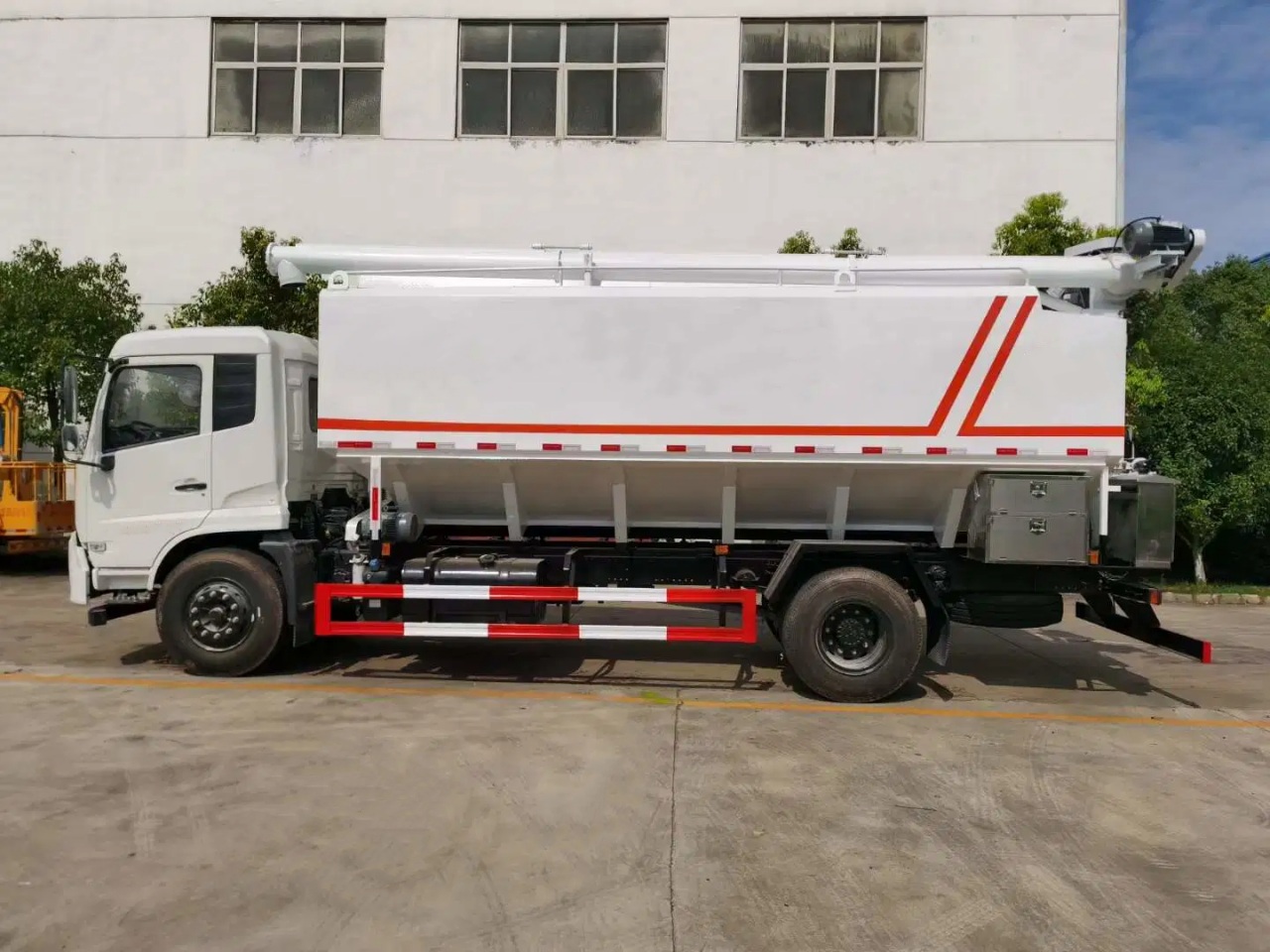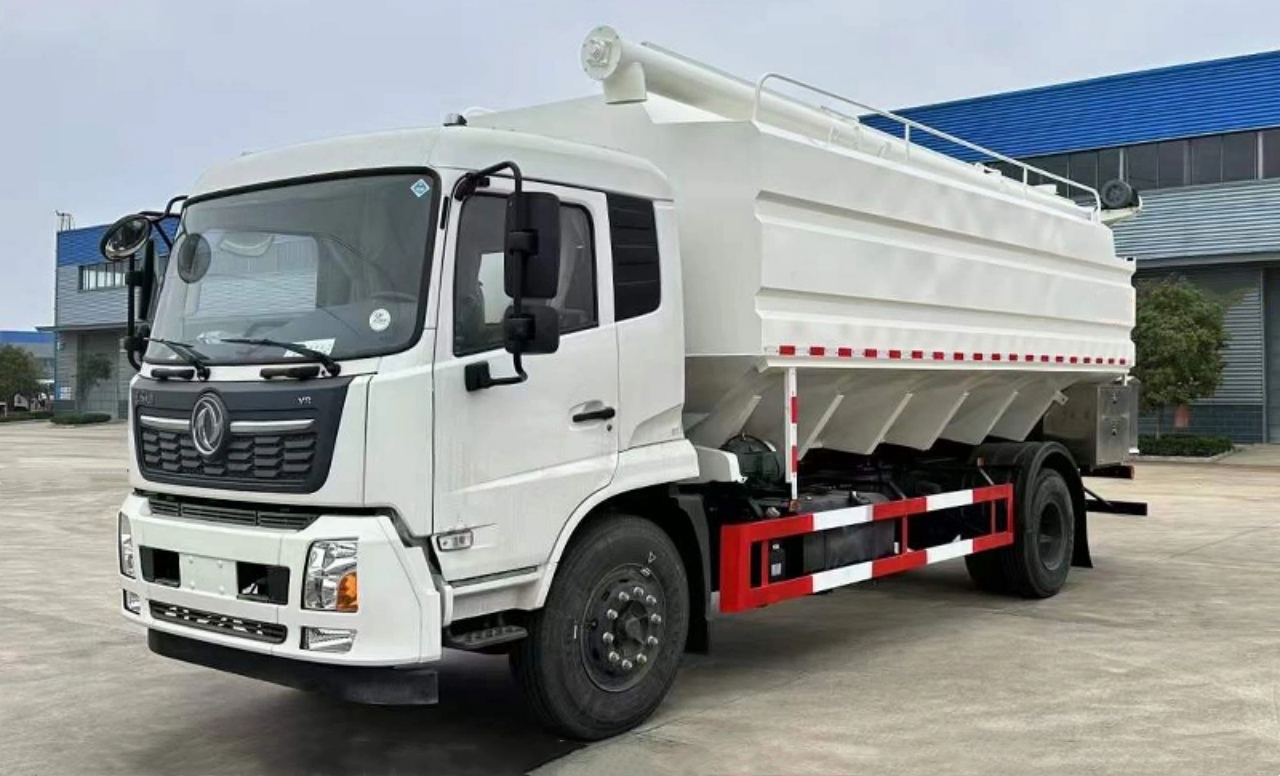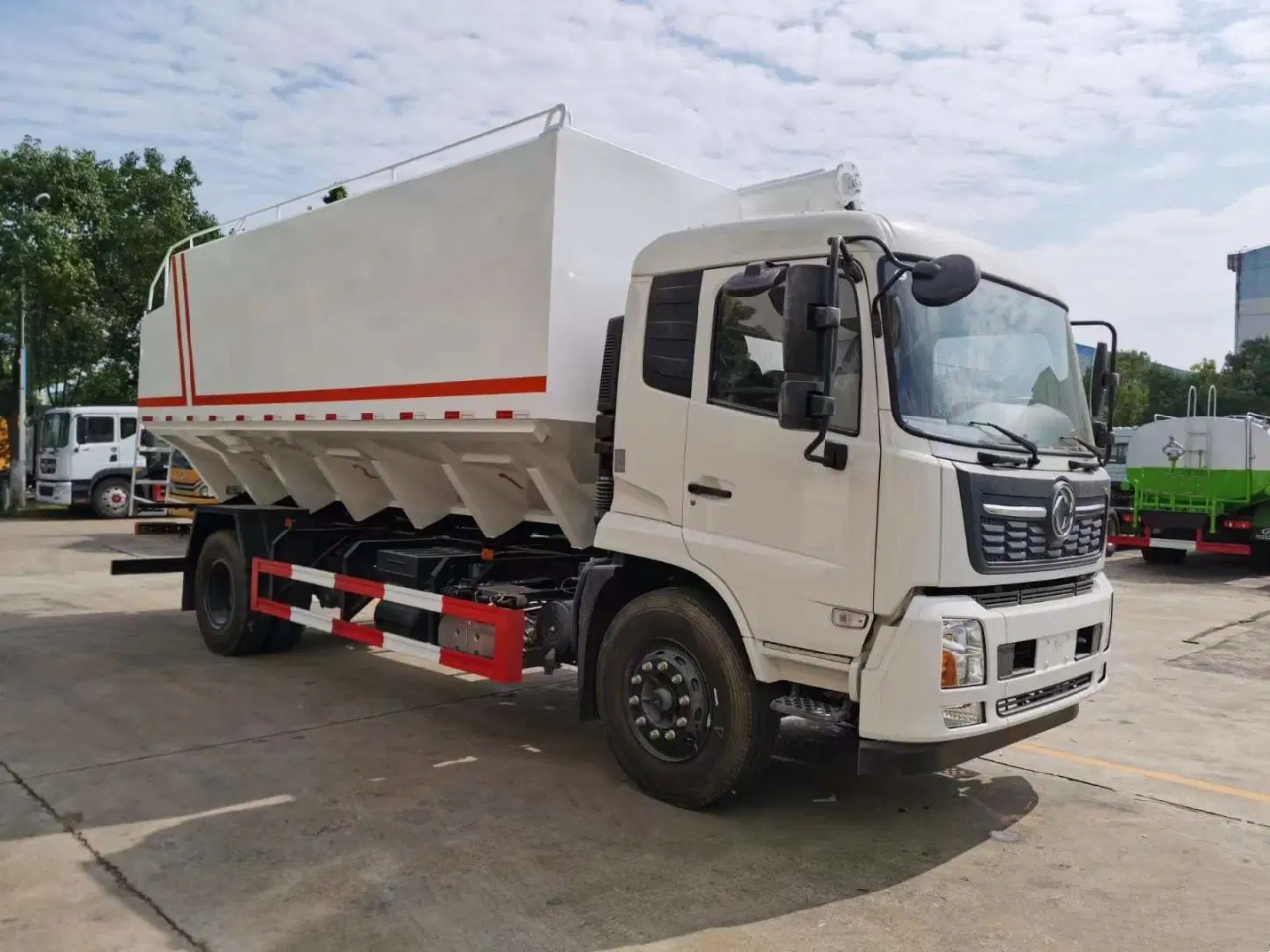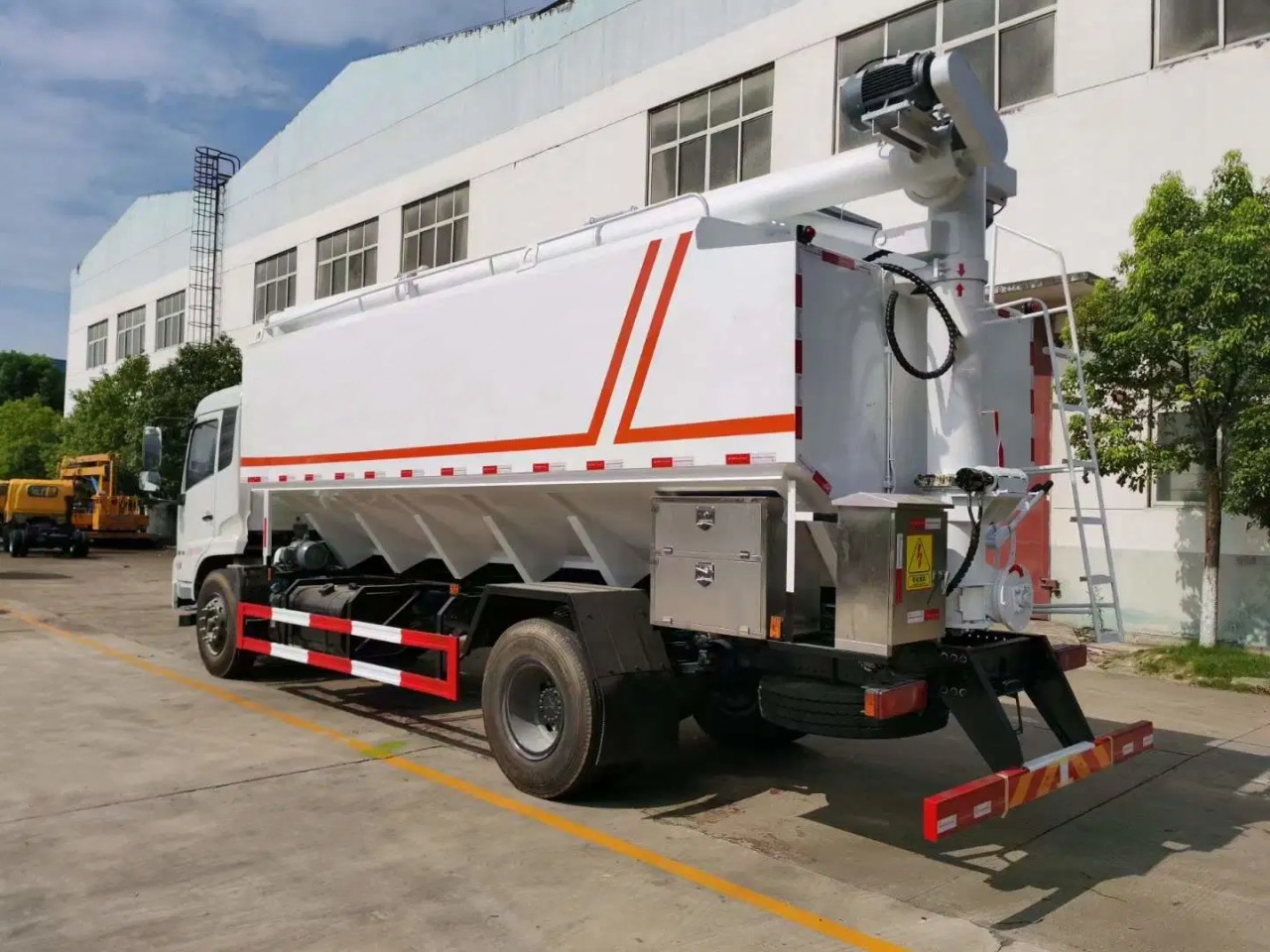A pneumatic truck is a specialized type of vehicle used for transporting and unloading dry bulk materials such as cement, flour, sand, grain, and other powdered or granular substances. These trucks are designed with an air-powered discharge system that allows for the efficient and contamination-free movement of materials from the truck’s storage tank to a designated location, such as a silo or storage bin. Pneumatic trucks play a vital role in industries such as construction, agriculture, food processing, and chemical manufacturing.
How Does a Pneumatic Truck Work?
The key feature of a pneumatic truck is its use of compressed air to unload materials. Instead of relying on gravity or mechanical conveyors, pneumatic trucks utilize a system of pipes, hoses, valves, and air compressors to push dry bulk goods from the truck’s storage tank into a receiving facility. The process typically involves the following steps:
- Loading – Dry bulk material is loaded into the tank of the truck at a supplier facility. The tank is sealed to prevent moisture and contamination.
- Pressurization – Once the truck reaches its destination, an onboard or external air compressor generates pressurized air inside the tank.
- Fluidization – The compressed air enters through aeration pads at the bottom of the tank, causing the dry bulk material to behave like a fluid, making it easier to transport.
- Discharge – The fluidized material is pushed through a hose or pipe to the designated storage area or silo.
- Depressurization – After unloading, the pressure is released from the tank, and the truck is ready for the next load.

Types of Pneumatic Trucks
There are several types of pneumatic trucks, each designed for specific materials and applications:
1. Cement Pneumatic Trucks
These are commonly used in the construction industry for transporting bulk cement from production plants to construction sites or batching plants. Their sealed design prevents cement from absorbing moisture, ensuring its quality remains intact.
2. Flour and Food-Grade Pneumatic Trucks
Food-grade pneumatic trucks are designed to transport powdered and granular food products such as flour, sugar, and grain. These trucks have specialized stainless steel tanks and food-safe aeration systems to prevent contamination.
3. Sand and Aggregate Pneumatic Trucks
These trucks transport fine aggregates, such as sand and limestone powder, for construction, glass manufacturing, and other industries.
4. Plastic Resin and Chemical Pneumatic Trucks
Used in the plastics and chemical industries, these trucks transport fine plastic pellets and chemical powders. Their tanks are designed to resist corrosion and contamination.
5. Multi-Compartment Pneumatic Trucks
These trucks have multiple compartments that allow them to transport different materials in a single trip. They are commonly used in industries that require flexibility in bulk material transportation.
Advantages of Pneumatic Trucks
Pneumatic trucks offer several benefits that make them a preferred choice for transporting dry bulk materials:
1. Contamination-Free Transportation
Since materials are stored in a sealed tank and transferred through a closed system, the risk of contamination from dirt, moisture, or foreign particles is minimized.
2. Efficient Unloading Process
The pneumatic system allows for faster and controlled unloading, reducing labor costs and minimizing product loss.
3. Versatility
Pneumatic trucks can handle a wide variety of dry bulk materials, making them suitable for different industries, from construction to food processing.
4. Moisture Protection
Unlike open-bed trucks or conveyor systems, pneumatic trucks prevent materials from exposure to rain, humidity, and other environmental factors that could degrade their quality.
5. Reduced Manual Handling
Since the unloading process is automated, there is minimal need for manual labor, reducing the risk of injuries and improving workplace safety.
6. Environmentally Friendly
By reducing spillage and dust emissions during transport and unloading, pneumatic trucks contribute to a cleaner and safer work environment.

Key Components of a Pneumatic Truck
To perform its function effectively, a pneumatic truck is equipped with several essential components:
- Tank – The storage vessel that holds the dry bulk material. It is usually made of steel or aluminum and has a sealed design to prevent contamination.
- Air Compressor – Generates the compressed air required to fluidize and transport the materials.
- Aeration Pads – Located at the bottom of the tank, these pads introduce air into the material to create fluidization.
- Discharge Valves and Hoses – Used to control the flow of material from the tank to the storage facility.
- Pressure Relief Valves – Ensures that the tank does not become over-pressurized during unloading.
- Manhole Covers – Provide access for loading and cleaning the tank.
Challenges and Considerations
While pneumatic trucks offer many benefits, there are some challenges to consider:
1. Initial Investment and Maintenance Costs
Pneumatic trucks are more expensive than conventional bulk transport methods due to their specialized equipment. Regular maintenance is also required to keep air compressors, valves, and hoses in optimal condition.
2. Energy Consumption
Operating the air compressor consumes a significant amount of energy, which can impact fuel efficiency and operating costs.
3. Material Compatibility
Not all dry bulk materials can be transported using a pneumatic system. Some highly cohesive or sticky materials may not fluidize efficiently, making it difficult to discharge them properly.
4. Limited Load Capacity
Pneumatic tanks have a specific load capacity based on pressure requirements, which may limit the volume of material transported per trip.

Applications of Pneumatic Trucks
Pneumatic trucks are widely used across various industries, including:
- Construction – Transporting cement, fly ash, and lime powder for building projects.
- Agriculture – Moving grain, feed, and fertilizers.
- Food Processing – Delivering flour, sugar, and other bulk ingredients.
- Plastics Industry – Transporting plastic resins and pellets.
- Chemical Industry – Handling fine powders used in industrial processes.
Conclusion
Pneumatic trucks are a crucial part of the bulk material transportation industry, offering an efficient, contamination-free, and environmentally friendly way to move dry bulk goods. Their air-powered unloading system allows for precise material handling, making them a preferred choice in industries requiring high hygiene and efficiency standards. While they involve higher initial costs and maintenance requirements, their advantages in speed, safety, and quality control make them a valuable investment for businesses involved in bulk material transportation.


